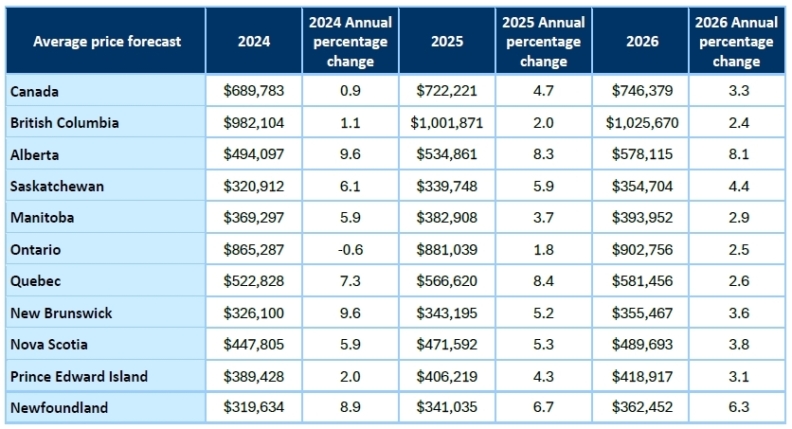The Canadian real estate market is eroding after the Trump Administration’s new 25% tariff laws imposed on Canada. Canadians are already seeing skyrocketing mortgage rates following the increased costs in construction, causing an already inconvenient real estate market to plummet further into uncertainty. Homebuyers and investors need to remain vigilant as a rapidly changing market can completely reshape the future of housing affordability in the coming years. This article will analyze the situation at hand, covering how it began, the impacts it may have, and the implications for those involved in Canadian housing.
The Tariff Showdown: What’s Happening and Why It Matters
The trade dispute began when the U.S. planted a 25% tariff on Canadian imports, including a 10% tariff on energy products. The Trump Administration has gone on record stating that these decisions are going to help American industries and addressing imbalances in Canadian trade. The Canadian government, formerly led by Justin Trudeau, is considering retaliatory tariffs on all USA machinery and consumer goods, potentially plummeting both countries into an economic war.
The Canadian housing market will be heavily impacted by this decision. Steel from the states, as well as Canadian softwood lumber, is a crucial ingredient in construction. Economic analysts fear that this trade disagreement could slow Canada’s GDP growth and limit the construction of future homes. Even though the Bank of Canada has lowered its key rate to 2.75%, Canadians aren’t out of the woods yet. These tariffs introduce substantial risks at a time when affordability is already strained; Canadian investors are guaranteed to see higher costs and new market pressures.
How Tariffs Could Push Up Construction Costs
Construction costs will rise as tariffs hinder materials from entering or exiting either country. Canadians rely on softwood lumber to build homes, but the costs may climb to 39% under the new U.S. tariffs. Builders will face additional expenses if Canada imposes tariffs on U.S. steel, drywall, or other imports. The Canadian Home Builders’ Association estimates that these combined pressures could add thousands of dollars to the cost of constructing a single home, a cost likely to be passed on to buyers in an already expensive market.
This increase compounds existing challenges. Developers may want to scale down their plans as the prices for materials increase, especially in high-demand areas like Toronto and Vancouver. Developers might even pause projects altogether. Shifting to alternative suppliers outside North America is an option, but it requires time and raises logistical costs, offering little immediate relief. Data from the U.S. suggests tariff-related cost increases of $7,500 to $10,000 per home; Canada could see similar figures. With insufficient housing supply to meet demand, these higher costs threaten to exacerbate the shortage and drive prices further out of reach.
Mortgage Rates and Affordability: A Tougher Road for Homebuyers
The economic effects of the tariffs might influence mortgage rates and their affordability. Canada’s methods of retaliation could fuel inflation and increase the cost of goods and services. This event could lead to the Bank of Canada pausing or completely reverting its recent rate cuts. Bond yield can rise due to higher inflation, leading to higher mortgage rates. Fixed rates for five-year mortgages currently about 4%. However, with the potential of it rising higher in the future.
These changes can lead to an extremely difficult environment for homebuyers to traverse, especially if it is their first time buying. There is also the risk of increases being driven by inflation, even if variable rates remain low. The path to ownership narrows with higher home prices driven by construction costs. In markets like Edmonton or Halifax, where affordability is relatively better, buyers may struggle as borrowing power shrinks. Renters, meanwhile, could face rising competition as new housing starts decline, further straining an overstretched market.
Will Home Prices Drop or Stabilize?
Home prices stabilizing will depend entirely on the competing economic forces at play. Increased construction costs and mortgage rates have the potential to decrease demand. This is true, especially in regions vulnerable to economic changes, such as Calgary, whose energy sector jobs might bend under the pressure of the tariffs. The economic slowdown may also prompt homeowners to adjust to financial strain, adding downward pressure.
However, in cities like Toronto and Vancouver, where housing supply remains critically low, prices may resist significant declines. Reduced construction due to tariffs could tighten inventory further, sustaining or even increasing values despite affordability challenges. The Canadian Real Estate Association’s pre-tariff projection of 4.7% price growth in 2025 may hold if supply constraints dominate, though a sharper economic downturn could alter this trajectory. Home prices are thus likely to experience volatility rather than a clear trend, varying by region and market conditions.

Source: https://www.crea.ca/media-hub/news/quarterly-forecasts-4/
The Investor’s Dilemma: To Buy, Sell, or Hold?
Investors might have to make difficult choices soon. Tariffs are introducing new risks, and the market is constantly changing. Selling now could secure profits before a potential slowdown reduces property values, particularly in markets like Calgary, where economic ties to exports heighten vulnerability. Toronto’s oversupply of condos might also depress rental yields, prompting some to divest. Conversely, holding existing properties could pay off if supply shortages increase rents and values over time, especially in multifamily units supported by programs like CMHC’s MLI Select, which offers favourable financing terms.
Buying requires caution. Preconstruction investments carry heightened risk due to unpredictable cost increases, while resale properties in undervalued areas might offer stability. Diversifying across regions or asset types could mitigate exposure, though currency fluctuations (if the Canadian dollar weakens) add complexity. Investors need to be aware of their tolerance to the risks and then be willing to alter their plans as the market changes.
Preparing for an Uncertain Future: Tips for Homebuyers and Sellers
Homebuyers need to equip themselves long-term. A strategic mindset will be a brilliant asset in the current economic climate. One method buyers can employ to protect themselves from future rate hikes is to have a fixed-rate mortgage as soon as possible. Depending on the municipalities’ response to economic pressure, there could also be significant increases in property taxes and maintenance costs.
Meanwhile, sellers should avoid hasty decision-making and focus on competitive pricing to attract buyers in this uncertain climate. They can emphasize energy efficiency to appeal to buyers who are conscious of the current cost. Investors should rely on data tracking housing starts and employment trends to inform their decisions.
Both parties should monitor the negotiations closely, as the shifting policies could completely change their confidence and costs. Preparation and adaptability will determine success for everyone in the real estate market.
Final Thoughts: Preparing for Market Changes
The real estate market is about to become more complex following the 2025 trade dispute, and proactive decision-making will be essential to navigate the changing conditions. The rising cost of construction and mortgage rates can threaten investors and homebuyers. Real estate prices might also vary, but they aren’t projected to have an impactful decline due to the supply shortages. Finally, any individuals involved in the market – whether it be through buying or selling – should remain informed and prepare to adjust to the fluctuating market.




